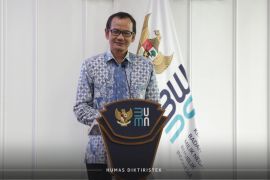Dahlan said there are BUMNs operating in these three sectors, and their size must be enlarged as they have wide impact on the country`s existence.Jakarta (ANTARA News' - State Enterprises Minister Dahlan Iskan, expressed his belief that state-owned companies must become engines of economic growth.
"To be able to become engines of growth, BUMNs, as the companies are popularly called, must be able to envisage the future, and that way preparations should be made, especially by those operating in certain sectors such as food, energy and weaponry," the minister said during a discussion on `Increasing added value, Supporting BUMNs` performance to become world class companies,' at Antam Building here on Wednesday.
Dahlan said there are BUMNs operating in these three sectors, and their size must be enlarged as they have wide impact on the country`s existence.
"Right now, there are already BUMNs operating in food, energy and weaponry sectors, but they are on a small scale. They must be developed to become big, so that they could not only meet domestic demand, but also compete in the global market," he said.
To support the idea, the minister said, there are BUMNs that can support growth in other sectors, such as those operating in the infrastructure sector such as roads, ports and warehouse construction. With food, energy and weapons supplies guarantees, those companies could expand abroad.
"After being able to defend the domestic market by meeting its needs, BUMNs can consider expanding. Defense is a good attacking strategy," Dahlan added.
Addressing about 200 participants consisting of BUMN directors and commissioners, Dahlan said it was now time for BUMNs to prove that they can become engines of economic growth.
"There must be some BUMNs that would become Asian leaders, or at least leaders in Southeast Asia. Indonesian companies must exist in the global arena," he said.
In view of that, he said it is the right time to put BUMNs in order by adjusting their numbers. "Identification must be made to determine which BUMN needs to be expanded, maintained, merged with others or even liquidated," Dahlan said.
He added that he agreed with liquidating small BUMNs which have the least prospects for success. "If a BUMN is not needed, there is no need to maintain it. It will only waste energy in saving BUMNs that do not have strategic value or make profits," he added.(*)
Editor: Heru Purwanto
Copyright © ANTARA 2012











